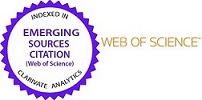Estratégias de regulação emocional de futuros professores
uma revisão sistemática da literatura
DOI:
https://doi.org/10.25053/redufor.v7i1.7152Palavras-chave:
Emoções, Formação de Professores, Revisão de LiteraturaResumo
As estratégias de regulação emocional podem ser ensinadas aos estudantes, contribuindo para melhor desempenho no contexto educativo. É importante, pois, identificar se os alunos conhecem e utilizam estratégias para regular suas emoções. Assim, o presente estudo objetivou realizar uma revisão sistemática da literatura acerca das pesquisas referentes às estratégias de regulação emocional de estudantes universitários, predominantemente de cursos de formação de professores. Foram analisados artigos internacionais e nacionais publicados entre 2015 a 2020 indexados nas bases de dados APA, BVS-Psi, ERIC, SciELO, Science Direct, Scopus e Redalyc. Após a aplicação dos critérios de inclusão, cinco estudos foram selecionados. Os resultados revelaram que os estudantes relatam empregar diferentes estratégias para regular suas emoções. Os instrumentos empregados nas pesquisas e as variáveis associadas ao uso dessas estratégias foram também identificadas. Destaca-se a necessidade de ampliação das investigações acerca dessa temática, no contexto nacional, considerando um maior número de variáveis de interesse.
Downloads
Referências
AKFIRAT, O. Investigation of relationship between psychological well-being, self esteem, perceived general self-efficacy, level of hope and cognitive emotion regulation strategies. European Journal of Education Studies, Bucharest, v. 7, n. 9, p. 286-306, 2020. DOI: http://dx.doi.org/10.46827/ejes.v7i9.3267.
ALHEBAISHI, S. M. Investigation of EFL student teachers’ emotional responses to affective situations during practicum. European Journal of Educational Research, Bucharest, v. 8, n. 4, p. 1201-1215, 2019. DOI: http://doi.org/10.12973/eu-jer.8.4.1201.
BZUNECK, J. A. Emoções acadêmicas, autorregulação e seu impacto sobre motivação e aprendizagem. Educação Temática Digital, Campinas, v. 20, n. 4, p. 1059-1075, 2018. DOI: https://doi.org/10.20396/etd.v20i4.8650251.
CAMILLO, J. G. H.; CUEVA, F. E. I.; VARGAS, I. M. Trabalho cooperativo e aprendizagem significativa em matemática em estudantes universitários de Lima. Educação & Formação, v. 5, n. 3, e3079, 2020. Disponível em: https://revistas.uece.br/index.php/redufor/article/view/3079. Acesso em: 19 out. 2021.
CANEDO, C. M. et al. Influencia de las estrategias cognitivas de regulación emocional en el bienestar subjetivo y psicológico en estudiantes universitarios. Liberabit, Lima, DF, v. 25, n. 1, p. 25-40, 2019. DOI: https://dx.doi.org/10.24265/liberabit.2019.v25n1.03.
CANETTIERI, M. K.; PARANAHYBA, J. C. B.; SANTOS, S. V. Habilidades socioemocionais: da BNCC às salas de aula. Educação & Formação, v. 6, n. 2, e4406, 2021. Disponível em: https://revistas.uece.br/index.php/redufor/article/view/4406. Acesso em: 19 out. 2021.
CHEN, J. Understanding teacher emotions: the development of a teacher emotion inventory. Teaching and Teacher Education, London, v. 55, p. 68-77, 2016. DOI: http://dx.doi.org/10.1016/j.tate.2016.01.001.
COATS, A. H.; BLANCHARD-FIELDS, F. Emotion regulation in interpersonal problems: the role of cognitive-emotional complexity, emotion regulation goals, and expressivity. Psychology and Aging, Washington, DC, v. 23, n. 1, p. 39-51, 2008. DOI: https://doi.org/10.1037/0882-7974.23.1.39.
CRUVINEL, M.; BORUCHOVITCH, E. Como promover a autorregulação emocional de crianças e adolescentes no contexto educacional. In: BORUCHOVITCH, E.; GOMES, M. A. M. (Org.). Aprendizagem autorregulada: Como promovê-la no contexto educativo?. Petrópolis: Vozes, 2019. p. 96-121.
DEMBO, M. H. Learning to teach is not enough – future teachers also need to learn to learn. Teacher Education Quaterly, San Francisco, v. 28, n. 4, p. 23-35, 2001. Disponível em: https://eric.ed.gov/?id=eJ636319. Acesso em: 19 jul. 2021.
ELDESOUKY, L.; ENGLISH, T. Regulating for a reason: emotion regulation goals are linked to spontaneous strategy use. Journal of Personality, Farmington, v. 87, p. 948-961, 2019. DOI: https://doi.org/10.1111/jopy.12447.
ELDESOUKY, L.; GROSS, J. Emotion regulation goals: an individual difference perspective. Social and Personality Psychology Compass, [S.l.], e12493, 2019. DOI: https://doi.org/10.1111/spc3.12493.
FLAVELL, J. H.; MILLER, P. H.; MILLER, S. A. Desenvolvimento cognitivo. 3. ed. Porto Alegre: Artes Médicas, 1999.
FRENZEL, A. C. et al. Emotion transmission in the classroom revisited: a reciprocal effects model of teacher and student enjoyment. Journal of Educational Psychology, Washington, DC, v. 110, n. 5, p. 628-639, 2018. DOI: http://dx.doi.org/10.1037/edu0000228.
GARNEFSKI, N.; KRAAIJ, V.; SPINHOVEN, P. Negative life events, cognitive emotion regulation and emotional problems. Personality and Individual Differences, [S.l.], v. 30, p. 1311-1327, 2001. DOI: https://doi.org/10.1016/S0191-8869(00)00113-6.
GROSS, J. J. Emotion regulation: current status and future prospects. Psychological Inquiry, [S.l.], v. 26, n. 1, p. 1-26, 2015. DOI: https://doi.org/10.1080/1047840X.2014.940781.
GROSS, J. J. The emerging field of emotion regulation: an integrative view. Review of General Psychology, Washington, DC, v. 2, n. 3, p. 271-299, 1998. DOI: https://doi.org/10.1037/1089-2680.2.3.271.
GROSS, J. J.; JOHN, O. P. Individual differences in two emotion regulation processes: implications for affect, relationships, and well-being. Journal of Personality and Social Psychology, Washington, DC, v. 85, n. 2, p. 348-362, 2003. DOI: https://doi.org/10.1037/0022-3514.85.2.348.
HAINES, S. J. et al. The wisdom to know the difference: strategy-situation fit in emotion regulation in daily life is associated with well-being. Psychological Science, [S.l.], v. 27, n. 12, p. 1651-1659, 2016. Disponível em: https://journals.sagepub.com/doi/10.1177/0956797616669086. Acesso em: 28 jul. 2021.
HARLEY, J. M. et al. Emotion regulation in achievement situations: an integrated model. Educational Psychologist, [S.l.], v. 54, n. 2, p. 106-126, 2019. DOI: https://doi.org/10.1080/00461520.2019.1587297.
LASA-ARISTU, A. et al. Profiles of cognitive emotion regulation and their association with emotional traits. Clínica y Salud, Madrid, v. 30, p. 33-39, 2019. DOI: https://doi.org/10.5093/clysa2019a6.
LAVY, S.; ESHET, R. Spiral effects of teachers’ emotions and emotion regulation strategies: evidence from a daily diary study. Teaching and Teacher Education, London, v. 73, p. 151-161, 2018. DOI: https://doi.org/10.1016/j.tate.2018.04.001.
MACÍAS GARCÍA, D. M.; GONZÁLES LÓPEZ, I. G.; ESLAVA-SUANES, M. D. O futebol como estratégia para o desenvolvimento da inteligência emocional do alunado de educação primária: uma experiência didática. Educação & Formação, v. 3, n. 8, p. 17-36, 2018. Disponível em: https://revistas.uece.br/index.php/redufor/article/view/268. Acesso em: 19 out. 2021.
MCRAE, K.; GROSS, J. J. Emotion regulation. Emotion, Washington, DC, v. 20, n. 1, p. 1-9, 2020. DOI: https://doi.apa.org/fulltext/2020-03346-001.html.
MOHER, D. et al. Preferred reporting items for systematic reviews and meta-analyses: the Prisma statement. International Journal of Surgery, v. 8, p. 336-341, 2010. Disponível em: https://www.sciencedirect.com/science/article/pii/s1743919110000403?via%3dihub. Acesso em: 12 jul. 2021.
PEKRUN, R. Emotions and learning: educational practices series-24. UNESCO International Bureau of Education, 2014. Disponível em: https://www.iaoed.org/downloads/edu-practices_24_eng.pdf. Acesso em: 19 jul. 2021.
PEKRUN, R. The control-value theory of achievement emotions: assumptions, corollaries, and implications for educational research and practice. Educational Psychology Review, [S.l.], v. 18, n. 4, p. 315-341, 2006. DOI: https://doi.org/10.1007/s10648-006-9029-9.
PEKRUN, R. et al. Measuring emotions instudents’ learning and performance: the Achievement Emotions Questionnaire (AEQ). Contemporary Educational Psychology, [S.l.], v. 36, p. 36-48, 2011. DOI: https://doi.org/10.1016/j.cedpsych.2010.10.002.
PEKRUN, R.; LINNENBRINK-GARCIA, L. (Ed.). International handbook of emotions in education. London: Routledge, 2014.
SCHLESIER, J.; RODEN, I.; MOSCHNER, B. Emotion regulation in primary school children: a systematic review. Children and Youth Services Review, [S.l.], v. 100, p. 239-257, 2019. DOI: https://doi.org/10.1016/j.childyouth.2019.02.044.
STUPNISKY, R. H.; HALL, N. C.; PEKRUN, R. The emotions of pretenure faculty: implications for teaching and research success. The Review of Higher Education, [S.l.], v. 42, n. 4, p. 1489-1526, 2019. DOI: https://doi.org/10.1353/rhe.2019.0073.
TAXER, J. L.; FRENZEL, A. C. Facets of teachers’ emotional lives: a quantitative investigation of teachers’ genuine, faked, and hidden emotions. Teaching and Teacher Education, London, v. 49, p. 78-88, 2015. DOI: https://doi.org/10.1016/j.tate.2015.03.003.
TAXER, J. L.; GROSS, J. J. Emotion regulation in teachers: the “why” and “how”. Teaching and Teacher Education, London, v. 74, p. 180-189, 2018. DOI: https://doi.org/10.1016/j.tate.2018.05.008.
THOMPSON, N. M. et al. Empathy and emotion regulation: an integrative account. Emotion and Cognition: Progress in Brain Research, London, v. 247, p. 273-304, 2019. DOI: https://doi.org/10.1016/bs.pbr.2019.03.024. Acesso em: 23 jul. 2021.
ULLOA, M.; EVANS, I.; JONES, L. The effects of emotional awareness training on teachers’ ability to manage the emotions of preschool children: an experimental study. Escritos de Psicologia, Málaga, v. 9, n. 1, 1-14, 2016. DOI: https://doi.org/10.5231/psy.writ.2015.1711.
VALLY, Z.; AHMED, K. Emotion regulation strategies and psychological wellbeing: examining cognitive reappraisal and expressive suppression in an Emirati college sample. Neurology. Psychiatry and Brain Research, [S.l.], v. 38, p. 27-32, 2020. DOI: https://doi.org/10.1016/j.npbr.2020.09.001.
ZIMMERMAN, B. J. Becoming a self-regulated learner: which are the key subprocesses?. Contemporary Educational Psychology, [S.l.], v. 11, p. 307-313, 1986. DOI: https://doi.org/10.1016/0361-476X(86)90027-5.
ZIMMERMAN, B. J. Becoming a self-regulated learner: an overview. Theory into Practice, [S.l.], v. 41, n. 2, p. 64-72, 2002. DOI: https://doi.org/10.1207/s15430421tip4102_2.
ZIMMERMAN, B. J. Self-Regulated learning: theories, measures, and outcomes. International Encyclopedia of the Social & Behavioral Sciences, [S.l.], v. 21, p. 541-546, 2015. DOI: https://doi.org/10.1016/B978-0-08-097086-8.26060-1.

Publicado
Como Citar
Edição
Seção
Licença
Copyright (c) 2022 Sofia Pellisson, Evely Boruchovitch

Este trabalho está licenciado sob uma licença Creative Commons Attribution 4.0 International License.
Os autores possuem direitos autorais dos seus textos:
A revista Educação & Formação permite ao autor os direitos de publicação, no entanto, recomenda um intervalo de dois anos para o caso de republicação.
Os nomes e endereços informados nesta revista serão usados exclusivamente para os serviços prestados por esta publicação, não sendo disponibilizados para outras finalidades ou a terceiros.






















